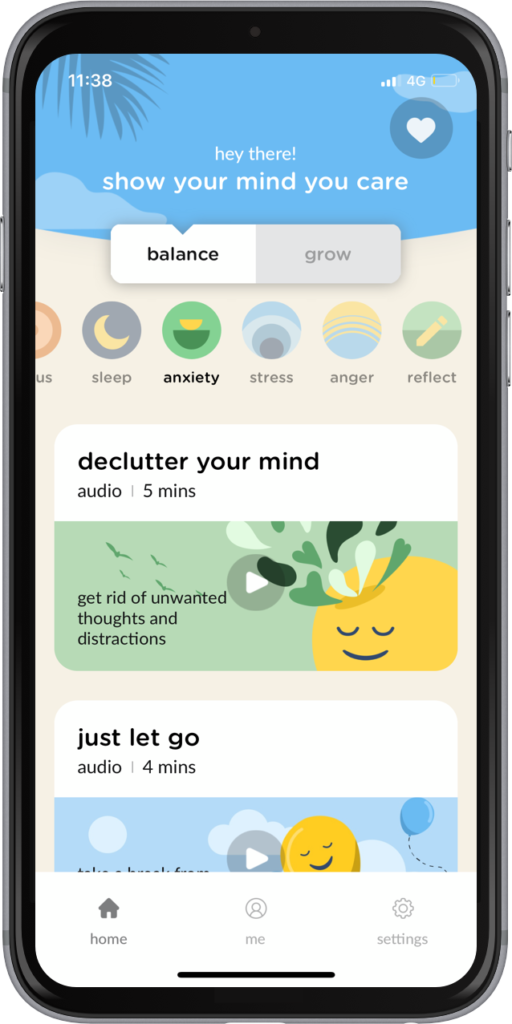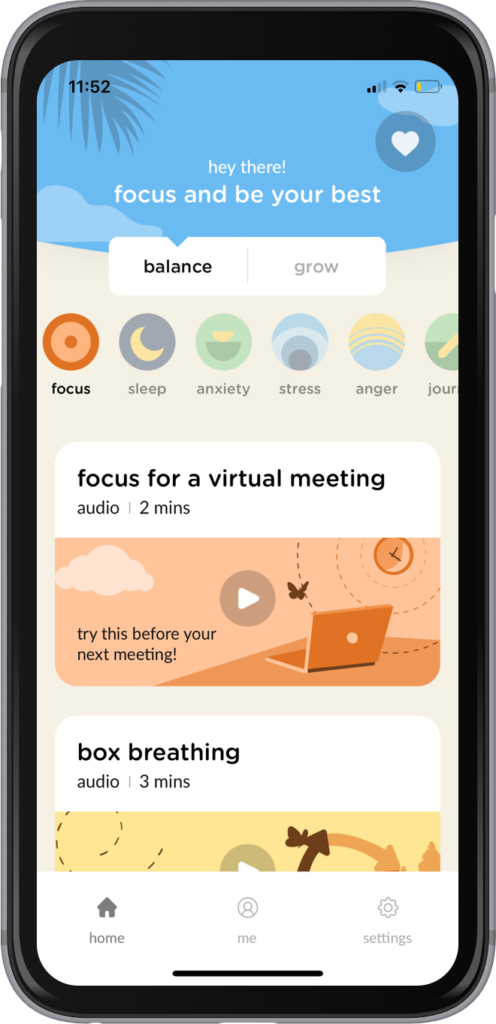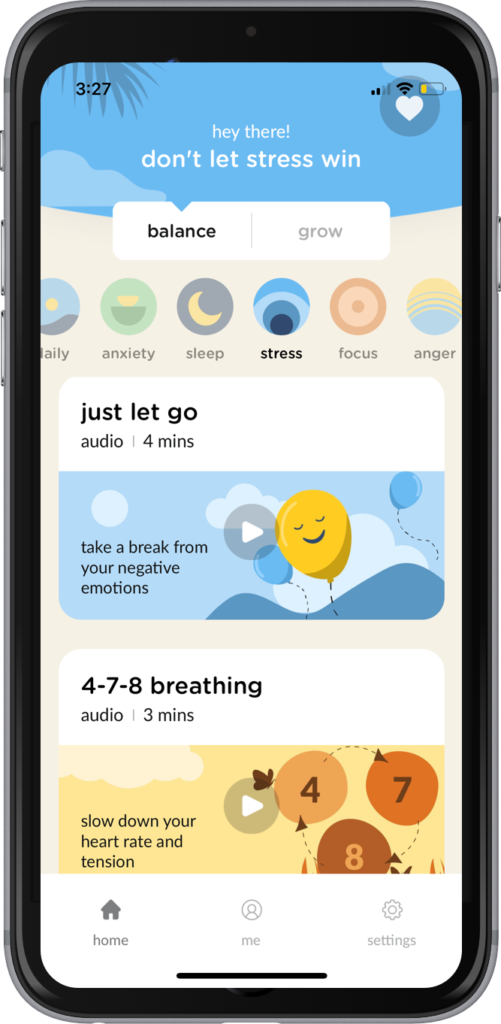Burnout is the physical and mental collapse caused due to prolonged and acute stress. It’s a condition that can affect anyone, be it a homemaker, manager or an employee. In 2019, WHO officially recognised burnout from work stress as a medical condition. You reach the burnout when you have been facing job stress for a long time and have been unable to manage it. You tend to lose motivation, feel tired all the time and feel overwhelmed due to the weight of expectations of others.
Excessive hours spent working without rest and proper sleep, are often the reasons you are facing burnout. However, your body and mind sends out signals to convey that you’re on the brink of burnout. It’s important you recognise these signs and take action to overcome it and feel better!
Table of Contents
Difference between stress and burnout
There is a difference between stress and burnout. Stress is induced due to a certain trigger or a situation, whereas burnout is a condition. With stress there is an end in sight, but getting there may be difficult. Burnout on the other hand is a cycle of negative emotions and withdrawal that result from a lot of strain and pressure, emotionally, mentally, physically with no immediate way to restore yourself to balance.

Physical signs of burnout:
There are many physical symptoms you feel when on the brink of burnout. They include:
- Chronic fatigue
- Constant headaches
- Loss of appetite
- Trouble sleeping and insomnia
- Weakened immunity
Chronic fatigue. If you’re always tired, unable to do basic physical activities and feeling lethargic you may be on the verge of burnout. Due to overwhelming amounts of stress, your body feels weak and you lose motivation. There’s increased levels of cortisol in your body and as a result, you face more fatigue.
Constant headaches. The high amount of cortisol leads to your blood vessel being constricted causing tension headaches. These increase as your stress gets more acute and eventually becomes a regular feature. In case you’re constantly feeling tired and having constant headaches, you may be facing burnout..
Loss of appetite. When stressed and burned out, you tend to lose your appetite. You’re in no mood to eat and because of the negative energy, you may not find any joy in it. As a result, you don’t eat properly or feel hungry. Remember, that’s not good for you and can cause further problems.

Lack of sleep and insomnia. When burned out, your sleeping pattern is affected. The high amounts of stress and constant pressure builds up. As a result, your brain and body are always trying to cope and are unable to rest. You’re unable to sleep and then feel more tired and the vicious cycle continues.It can even lead to potential insomnia. In case you’re unable to sleep, please try these simple tips to sleep better. Remember, sleep deprivation comes with its own health consequences and you must try to change it!

Weakened immunity. When facing burnout, your immune system is compromised. You are susceptible to cold, coughs, chest pains and stomach aches more than usual. When cortisol levels are high due to exhaustion and stress, your antibody response is slow and your body cannot fight against illness in time! As a result, you may fall sick more often and pay even less attention to work.
Emotional and mental symptoms of burnout:
You may be able to look for signs of burnout through your mental and emotional health! The signs and symptoms include:
- Complete loss of motivation
- Irritability and cynicism
- Lack of focus and concentration
Complete loss of motivation. When feeling burned out due to overwhelming pressure and stress, you lose motivation and start to hate work. You don’t want to go to work, find excuses to skip work and do the bare minimum. The situation has come so dire that it doesn’t really matter and you lose total interest. The lethargy is in your emotions and you don’t feel like working.
Irritability and cynicism. When you’re facing burnout, you are fed up with everything. You’re tired and don’t have interest in work. As a result, you feel moody and get irritable. High amounts of stress cause mood swings, and when left unchecked they can get worse. Moreover, you start feeling negative and see a dim view on everything. You might be increasingly cynical, sarcastic and pessimistic!
Loss of focus and concentration. Another sign of burnout is a drop in focus level and concentration. There’s reduced initiative at work and home, whatever your work. You are unable to focus on work because of lack of interest and distracted. When facing stress, your body functions on dealing with the pressure point and taking care of it instantly. However, your body is accustomed to it only in short bursts in order to provide stress relief. When the stress is constant, you struggle to pay attention to multiple things. As a result, your overall focus and concentration level drop. Learn to improve your focus here!

How to overcome burnout
- Take a break
- Change your lifestyle
- Start saying no
- Stress management
- Create a structure
- Destress post work
Take a break. When facing burnout, a break from work may be needed. Because you’ve lost motivation and are always tired, 3-5 days of no work and a small holiday could work in your favour. Even if you stay at home, spend time with loved ones, volunteering or just do your favourite things , it can help raise your morale and recover.
Change your lifestyle. If you are feeling burned out, it often means you have been neglecting yourself and needs. Start to show yourself some more love. Make an effort to sleep on time and get more rest. Even light exercise everyday can help you destress and help boost your mood. Follow a healthier diet by reducing junk food and eat food that helps your system and reduces anxiety. More sleep and better self-care will help.
Start saying no. When facing burnout, don’t take on additional work. Refuse additional work until you feel okay. Yes, people may be depending on you at work, but at such times it’s okay to say no to work. You need to take care of yourself first, ease workplace stress, be in a balanced and happy state before you can take on any more work.
Stress management. Practice simple stress management techniques which help you reduce stress and manage it better. The 4A technique is a particularly effective one where you “Avoid” stressful situations, “Alter” the situation, “Adapt” yourself to the stress and finally “Accept” the situation. You can learn more about it in depth here.
Create a structure. A good way to recover from a burnout is to ensure there is a clear flow of work during your day. With working from home now prevalent, it’s important to stay focused and reduce any unnecessary stress. Know what time you start work, when you’ll eat meals and take breaks. Notify others you work with, about your schedule. Following the structure and schedule will help you stay on top of things and be in control. As a result, you will start to feel better about your work and your goals.

Destress post work. Follow a simple routine everyday post work to help yourself wind down and destress. It demarcates the moment you step away from work and start spending time with yourself and your family. It could be something as simple as a bath, or meditation or even going to exercise. What matters is taking care of yourself and destressing yourself in order to boost your mood, relax and relieve stress.
Burnout recovery is not an overnight process, just like burning out. It will take time and effort, but the reward will be very sweet. You’ll find your motivation, your energy and improve your health and happiness. Create a recovery plan for yourself spanning a few weeks in which you can try to follow all the above points.
To sum up
Burnout is a very extreme condition because of high levels of stress and pressure. There are other ways you can tell you might be facing burnout, every person may not react the same. What’s important is to take steps to overcome burnout and bring yourself back to balance.
If these symptoms resonate with you and you feel you are facing burnout, check out our burnout self-test. Moreover, take a break from work and try to recharge yourself. Spend some time with your family and put your mind away from work. Meditation, mindfulness and relaxation can help you. We also suggest you seek help from a qualified expert. You can write to us info@evolveinc.in and we will be happy to connect you with someone.
Evolve has a range of guided audios which help you proactively manage stress and reduce it within minutes. The Evolve app is now live globally on Android & Apple, click here to try for free!
With over 300 articles published on Evolve. Jash is one of the most viewed writers on topics such as Sleep, Mindfulness and Stress. Drop a mail at Jash@evolveinc.in to connect with him.
